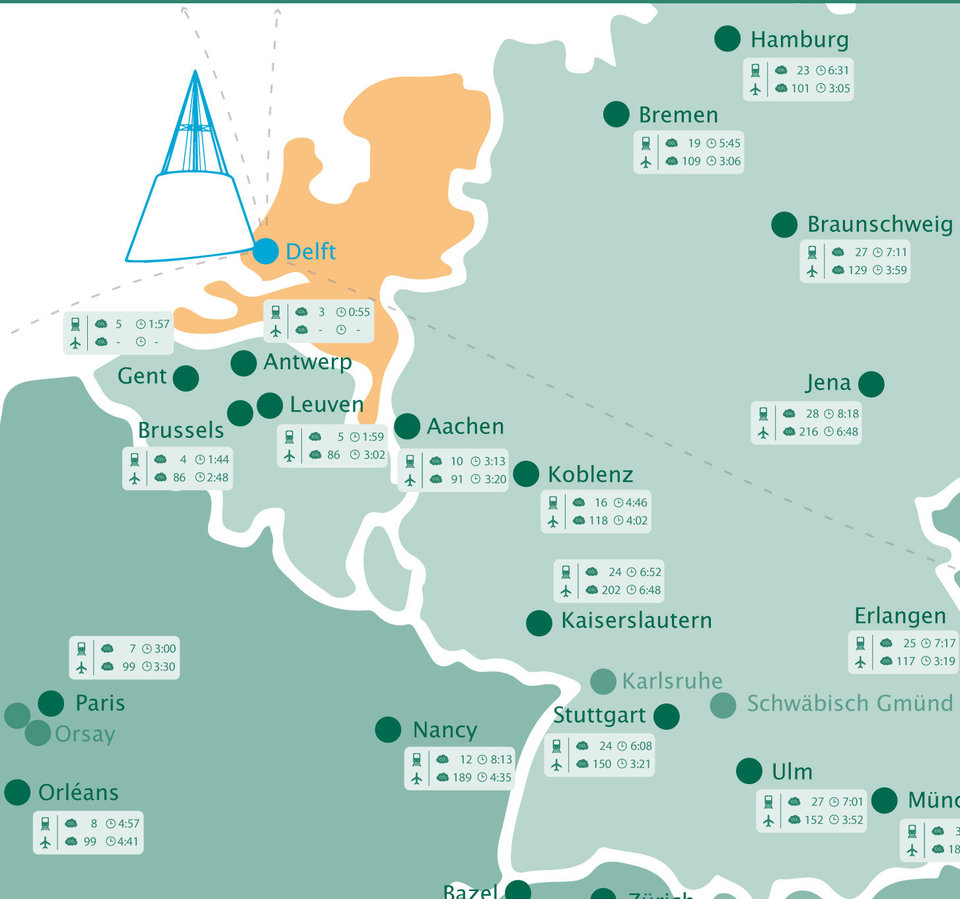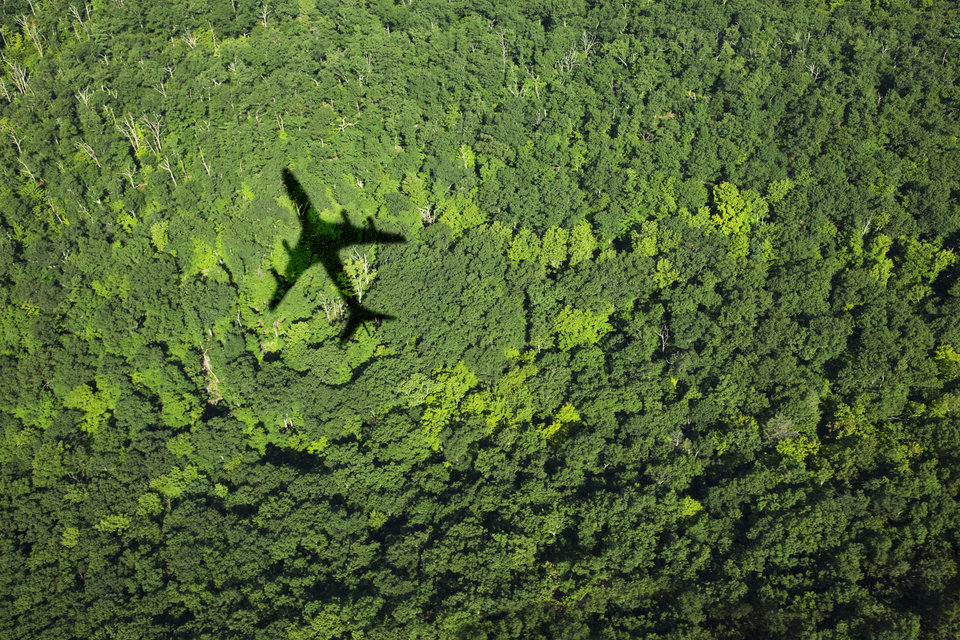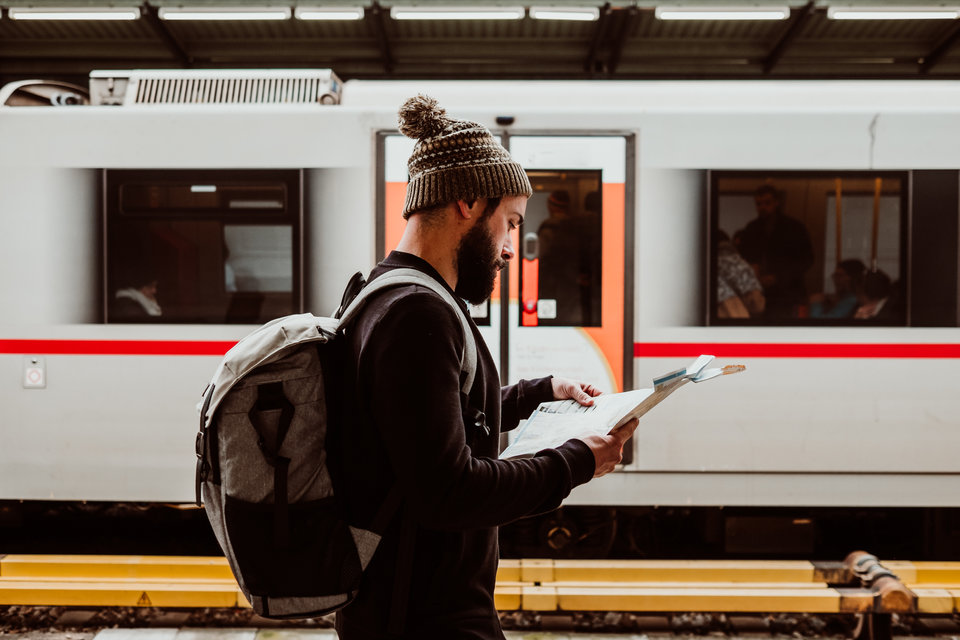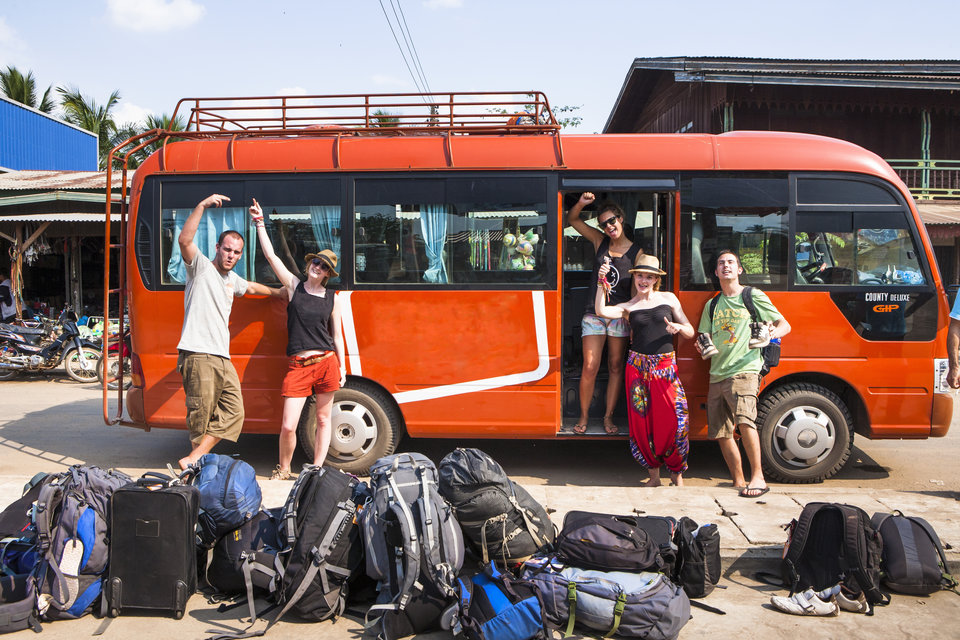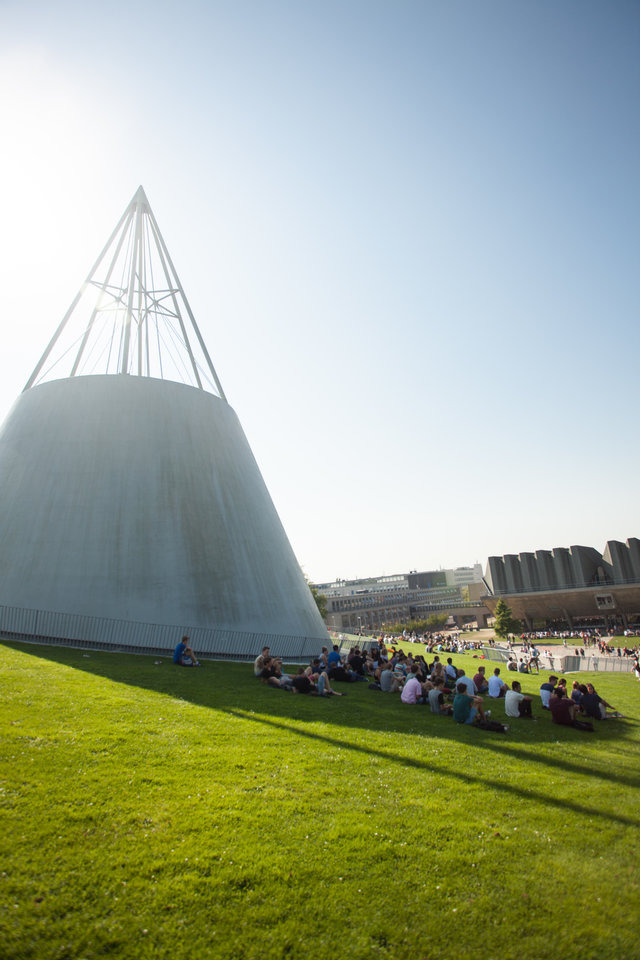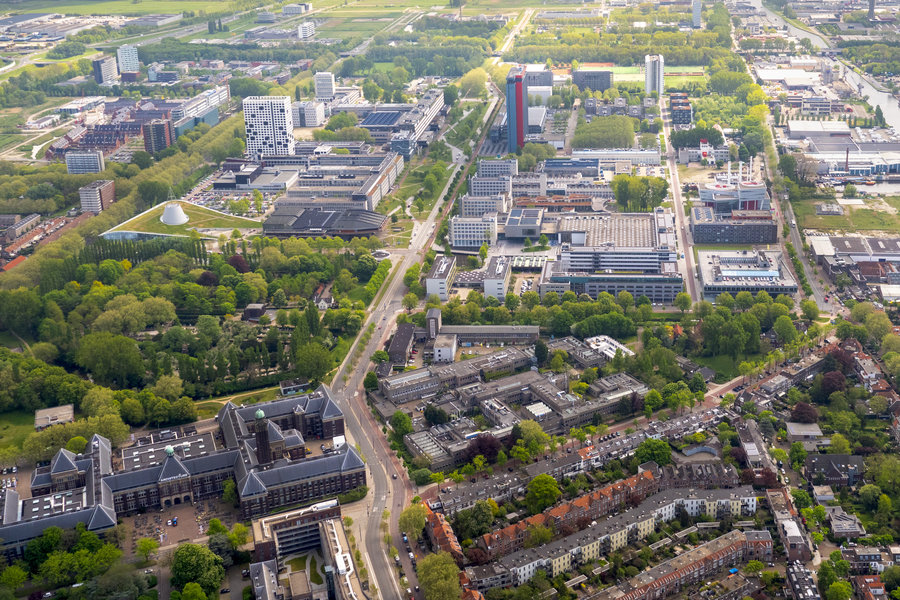Green Travel
Did you know that many EU destinations can be reached by bus or train, saving lots of CO2 that you would have been responsible for emitting if you had travelled by plane?
TU Delft would like to invite you to consider your travel options and encourage you to take a train or a bus to your destination. To travel green is to make a simple choice to lessen your negative impact on the environment, on a given destination and its local people. Individually you can make that change today to make a big difference tomorrow.
Let’s make an effort together!
Benefits of Travelling Green
- Sustainability: less CO2 consumption, less noise, a more energy efficient way of travelling.
- Discover Europe: plan extra stops and see more of Europe than just Delft, your destination, and the sky. Turn your journey into a vacation and meet different people from diverse cultural backgrounds on the way. Let the adventure start at your doorstep!
- The Experience: enjoy slow travelling or take a night train. You can easily use the time on board to read, sleep, watch a movie and engage with fellow travellers.
- Budgetwise: travelling by train or bus can be cheaper than by air, for example to cities like Berlin, Paris or Warsaw.
- Luggage Flexibility: less luggage restrictions apply to a bus or train; you could even take your bike on the train too.
More Information
The Student Experience
Here you can read the exciting adventures of students who decided to Travel Green for their study abroad.
Have you done this too? Would you like to share your experience? Inspire other students to be Green? We’d love to hear from you, please email us at: contactcentre-esa@tudelft.nl
Student Reports
Student Quotes
Did you travel sustainably to your exchange destination?
"I went carpooling to and from Milan with a friend provided an eco-friendlier alternative to flying back-and-forth. The journey to Milan by car, including a visit to my aunt in the South of France, offered a comfortable drive. Milan’s public transport system, encompassing trains, trams, metros, and bike-sharing platforms (BikeMi), proved efficient and accessible. Monthly subscriptions for public transport, such as the ATM subscription for 22 euros, facilitated unlimited travel."
Did you travel sustainably to your exchange destination?
"Both ways to Vienna I travelled sustainable with the train. I took the night jet from Utrecht to Vienna all the way through Germany. I really liked the train, because it was cheap and after one night you were in Vienna."
Did you travel green at the host?
"In Vienna the public transport was very good. It was 80 euros for a whole semester. I could take the metro, the tram, and the buses. This was nice to travel in a big city like Vienna. The trams and metros were always on time."
Did you travel green at the host?
"If you’re planning to use public transport a lot, I would advise you to get a youth card, as this monthly membership allows you to travel as much as you want and public transport is quite expensive. I brought my race bike to Denmark and thus cycled to Copenhagen quite a lot."
Why did you decide to travel green/sustainable?
"In my case the green option was also the most convenient option for my situation. Due to my internship being finalized very last minute, by the time I was ready to look at flights, most of the options were out of my price range. I was also moving to Munich the night before my internship began, so on top of clothes, I also needed to bring kitchenware and living essentials to survive my first week in an unfurnished apartment. When I checked other transportation options, the Deutsche Bahn ICE was the best option for me due to the frequency of the trains, the price, and because I could take as much luggage as I needed at no extra cost."

Are you thinking of taking the train? Here are some tips if you are considering this option. Check out the Experience stories here from students who took the train instead of flying!
- Did you know that popular destinations such as Paris and London can often be reached inexpensively by train? It is certainly worthwhile checking the price of train and bus tickets for other destinations too.
- Book your (train) ticket well in advance. With some carriers, this is possible up to 6 months in advance.
- Travelling by train with some friends or as a group? NS International offers a group discount.
- Are you applying for the Erasmus+ scholarship? There is an Interrail Pass for Erasmus+ students. The Interrail Global Pass for Erasmus+ has been developed in collaboration with the Erasmus Student Network (ESN), one of the biggest student associations in Europe. The classic Interrail youth discount (25% off!) is available to under 28s.
- When travelling by train you are more flexible regarding the amount (and size) of luggage. You could even consider taking your bike with you!
- Train stations tend to be more centrally located, while airports tend to be on the outskirts of cities. Arriving by plane requires extended travel times and extra costs to reach city centres.
- No need to wait in line - just turn up and hop on board (for most trains) - no check-in, no arriving 2 hours before your train departs.
- Travelling by train offers more leg room, Wi-Fi access and splendid views.
- Here are some links to some useful train services
- Planning a trip with a large group of people? Renting a bus may be a cheaper option for you.
- You may even consider using your OV travel pass to reach the Dutch border. Check out further details here.
- When travelling by bus, you are more flexible regarding the amount (and size) of luggage. You could even consider taking your bike with you!
- When you book an online ticket check if you can compensate your CO2 emission for your trip.
- The CO2 emission of a bus is lower, per traveller. A bus emits 16% of what a car emits and 12% of a plane.
- Research all ticket options. You may want to consider travelling in the evening or weekend for cheaper alternatives!
- Bus stations tend to be more centrally located, while airports tend to be on the outskirts of cities. Arriving by plane requires extended travel times and extra costs to reach city centres
- No need to wait in line - just turn up and hop on board (for most buses) - no check-in, no arriving 2 hours before your bus departs.
- Travelling by bus offers more legroom, Wi-Fi access and magnificent views.
- Here are some links to some useful bus service websites:
- Using a smaller four wheel vehicle could also help the environment on a smaller scale. This is only possible if you share a car, otherwise known as ‘carpooling’. It is considered by the EU Erasmus + programme to be a sustainable means of travel. Travelling with more than one person in a normal car reduces the CO2 emission for your trip and even more so with an electric or Hybrid car. Blablacar is one website that assists with carpooling.
If you do decide that the plane is the only option of reaching your destination you may want to consider these options to help the environment.
- Choose an airline that is fuel-efficient and is committed to reducing their emissions.
- Avoid first-class travel, travelling first class with more legroom provides less seats on the flight and therefore increasing the CO2 emission for your trip.
- Travel from an eco-conscious airport.
- Pack lightly.
- You may want to offset your carbon emissions, such as donating money or planting a tree (for example: Trees for all).
- Travel to the local airport or main intercontinental airport hub by bus or train, so you can book a non-stop flight from there. The main hubs in Europe (Schiphol, Paris-Charles de Gaulle, London Heathrow, Frankfurt and München ) are easy to reach by fast train connections.
Compensate your CO2-emissions?
You can compensate your CO2 emissions by donating an amount of money to (re)foresting projects. You can find many projects online. If you think of compensating your emissions, please also look at the way the organisations deal with the needs and rights of the people living in the region. Choose for certified projects, like goldstandard.org or standfortrees.org (source: De Correspondent) or the CBF-certified treesforall.nl. If you want to make a real difference: compensate your emission in tenfold! This makes it more likely ‘your’ trees will be standing there long enough to actually compensate your netto emission. In this way, you pay for the actual costs for the climate damage you cause.
Here are some Green Tips & Tricks to travelling green.
We feel it is important for us all to make a step (be it small) to help the world we live in today.
- Since booking websites may charge an additional booking fee, you can save money by booking your trip yourself directly.
- Renting an electric/hybrid car for your journey.
- Travelling in the evening hours or in the weekend can be cheaper.
- If you like to book a weekend trip, it can save you money to travel from Saturday-Monday instead of Friday-Sunday.
- Are you in for a spontaneous trip? Hitchhiking can be very adventurous. Hitchwiki has gathered lots of information to help you on your way
- Stay overnight with a local, why not stay with a student in another exciting European student city? You could check this out via couchsurfing.com
- Other ways to help is to travel with a reusable water bottle, take your own snacks to avoid buying packaged food, and fully charge all your electrical items so you do not have to do this onboard.
- Save all your documents online to save printing on paper.
- Take your bike with you as this is the greenest means of travelling.
- If you do decide that the plane is the only option of reaching your destination you may want to consider these options to help the environment.
- Choose an airline that is fuel efficient and is committed to reducing their emissions.
- Avoid first-class travel, travelling first class with more legroom provides less seats on the flight and therefore increasing the CO2 emission for your trip.
- Travel from an eco-conscious airport.
- Pack lightly.
- You may want to offset your carbon emissions, such as donating money or planting a tree (for example: Trees for all).
- Travel to the local airport or main intercontinental airport hub by bus or train, so you can book a non-stop flight from there. The main hubs in Europe (Paris-Charles de Gaulle, London Heathrow, Frankfurt and München) are easy to reach by fast train connections.
If you have any other tips you would like to share, please email: contactcentre-esa@tudelft.nl
The Most – and least eco-friendly transportation means
- International rail – 6kg CO2 per km
- Ferry (foot passenger) - 19kg CO2 per km
- Electric car – 53kg CO2 per km
- Bus – 105kg CO2 per km
- International flight – 150g CO2 per km
- Average Diesel car – 171kg CO2per km
- Average Petrol car – 192kg CO2 per km
- Domestic flight – 255g CO2 per km

